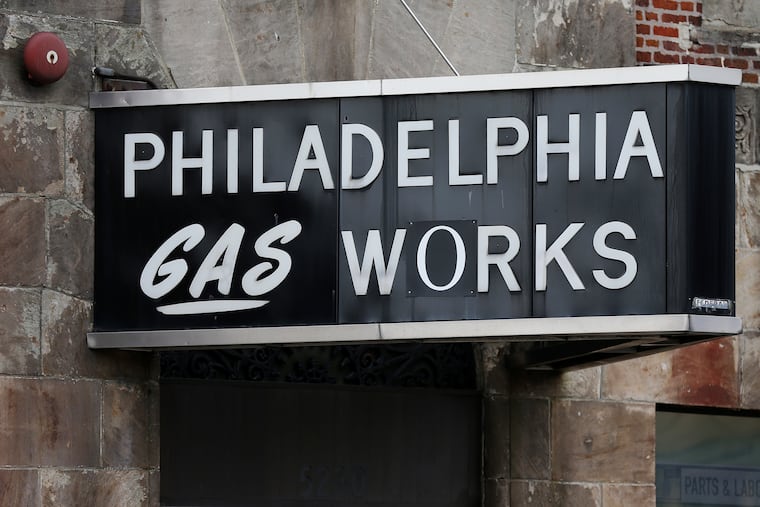Utility commission seeks $300,000 penalty from PGW over 2021 South Philadelphia gas explosion
PGW failed to inspect a four-inch cast-iron gas main near 815 Jackson St. following sewer repairs in the area that undermined the soil around the pipe, the PUC safety bureau says.

The Pennsylvania Public Utility Commission’s safety bureau is seeking a $300,000 civil penalty against Philadelphia Gas Works over a 2021 South Philadelphia gas explosion, according to a recently filed complaint.
PGW failed to inspect a four-inch cast-iron gas main near 815 Jackson St. following sewer repairs in the area that undermined the soil around the pipe, leaving it prone to cracking, the commission’s Bureau of Investigation and Enforcement alleges. A crack went on to form in the pipe, leading to a Nov. 30, 2021, explosion that injured three people, caused the evacuation of six homes, and resulted in more than $100,000 in damages.
Investigators claim that PGW knew the gas main was a potential safety issue due to the excavation work required to perform the sewer repairs, which the utility was informed of through a system used to help protect underground lines known as Pennsylvania One Call. Two contractors used that system to inform the utility of excavation work at neighboring homes months prior to the explosion, and PGW marked the locations of its gas lines ahead of the work, as required.
PGW allegedly failed to comply with its own internal procedures, as well as state and federal law, by not investigating the pipe amid the sewer work, investigators said in the complaint. Additionally, the complaint said, the 800 block of Jackson Street sustained a number of gas main breaks from 2009 to 2018, but PGW records indicated that the utility was unaware of any “underground street troubles” in the area in the decade before the explosion.
“Safety is PGW’s number one priority,” a PGW spokesperson said in a statement. “While the proposed penalties would unfairly penalize PGW’s ratepayers for the failures of others, this filing reinforces the importance of hiring licensed, well trained, and qualified plumbing contractors. Poorly performed plumbing work can introduce a host of potential risks to the public that are difficult to detect once the underground worksite is covered and paved.”
The commission does not hold power over the contractors who performed the excavation and sewer work, and its investigators’ complaint does not directly hold them responsible for the explosion. Additionally, the complaint stipulates that any penalty, if approved by commissioners, cannot be “passed through as an additional charge to PGW customers in Pennsylvania.”
Alongside the proposed $300,000 penalty, investigators have asked the commission to require PGW to make changes to its safety procedures, and institute a pilot program for methane detectors that would be installed at 2,000 homes in the area of the explosion.
A final decision has not yet been made regarding the commission’s complaint, and PGW will be able to defend itself against the claims.
Philadelphia’s aging gas line infrastructure has long been a concern. Cast-iron pipes can weaken as they age and break or crack, leading to gas leaks and possible explosions. Many cast-iron pipes in the city are roughly a century old.
A 2019 explosion in South Philadelphia that killed two people and destroyed several homes on the 1400 block of South Eighth Street was also caused by a leak in a gas main, officials said in 2020. PGW faced a safety complaint from PUC investigators in relation to that explosion, and litigation remains ongoing.
In a 2022 commission filing, PGW said that about 56% of its 3,046 miles of gas mains were “at risk” — meaning they are constructed from cast-iron or unprotected steel. PGW has long been working to replace its riskiest pipes, ramping up the effort nearly a decade ago to replace more than 30 miles of pipes annually.
At its current replacement pace, the utility estimates that all of its cast iron mains will be replaced with plastic PVC piping by 2058, according to its website.